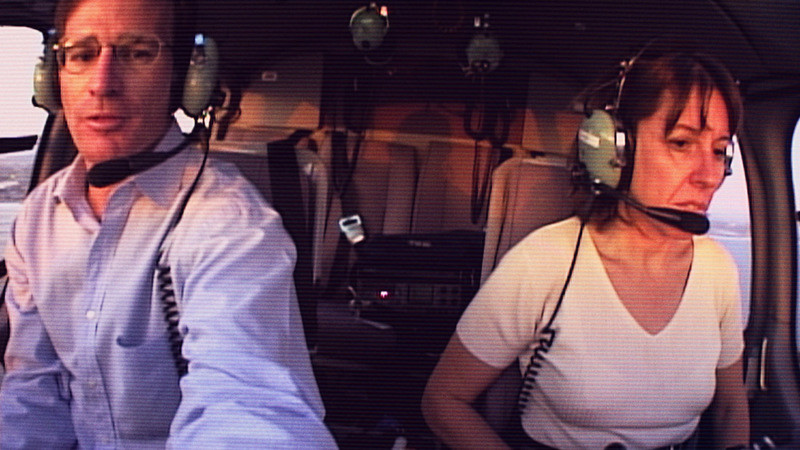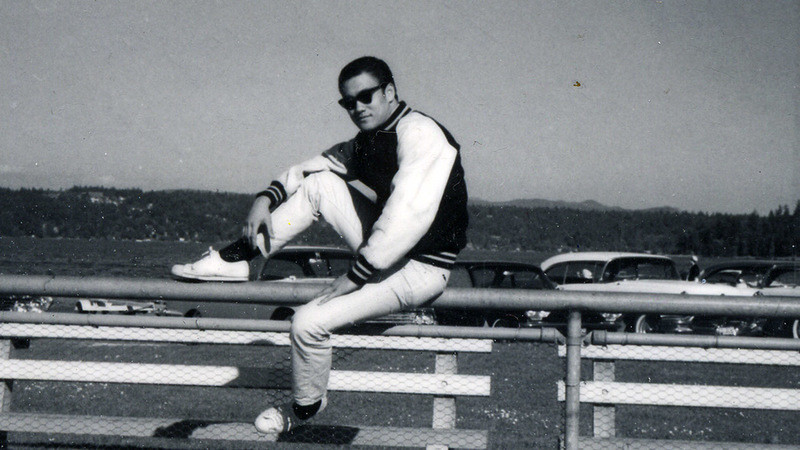The U.S. Documentary Competition category at Sundance is often a program of discovery. The names in non-fiction that you already know and love often find themselves in categories like Documentary Premieres, leaving space here for newcomers, often tackling unique subjects. It’s a program that feels like it’s more open to risk-taking in terms of form and even content, tackling subjects that may not be as tailor-made for HBO Films or CNN in a few months. Sadly, the first three I’ve seen from this section all disappointed to varying degrees.
Advertisement
The best of the three is Shalini Kantayya’s “Coded Bias,” the fascinating study of how even the seemingly impartial world of technology is subject to embedded racism and privilege. The truth is that more and more of our lives are being dictated by technology, including not just the personalized ads we see on Facebook but elements that can impact our future, including risk assessment for credit and even machines that sort and rank job applicants. As technology makes more and more crucial decisions, it’s worth asking if that technology has a bias in its decision-making process.
Joy Buolamwini became embroiled in this issue when she discovered that the facial recognition software she was using at the MIT Media Lab did not recognize her black face as much as it did when she put on a white mask. Why is this? And how widespread a problem could this be? Buolamwini began investigating the lack of legislative oversight over technology in terms of bias and even in terms of how governments are using it to profile. One of the striking things viewers will walk away from “Coded Bias” learning is that while we all think that China with its “social credit” system is the slippery slope down which we don’t want the United States to fall, our country is arguably doing much worse things with its technology – we’re just nowhere near as transparent about it.
“Coded Bias” contains discovery after discovery about the problems emerging in this field of technology, and, much worse, how little is being done to solve it. There’s the legendary tale of the Twitter Bot who became racist and horrible in less than a day and the fascinating one about how Amazon used an algorithm to do the first cut of job applicants only to discover that the system was basically only letting in white men. The fact is that systems are built on history, and history has a trouble reflecting progressivism, equality, and the human variable. It’s clearly an interesting subject matter, and the only real flaw of “Coded Bias” is one of runtime in that this subject and the way its executed feels like it could be handled just as well and perhaps even more urgently in a “Frontline” episode or even a “60 Minutes” segment. Still, there’s a lot to discuss here and it’s a conversation that’s only just beginning.
Advertisement

There’s less meat on the bones of Matt Yoka’s well-intentioned but frustrating “Whirlybird,” a film about two legendary reporters in Los Angeles that feels a bit too much like watching someone else’s home movies and never quite achieves its goal of tracking the development of an industry or one of the world’s most famous cities. Married couple Marika Gerrard and Bob Tur were on the forefront of a breaking form of news journalism in Los Angeles when Tur bought a helicopter and started flying over the city of angels. Gerrard and Tur were front and center for major news events seen around the world, including the L.A. riots and the O.J. Simpson Bronco Chase, which they chronicled most memorably. That footage of the white Bronco slowly moving down the freeway that everyone in the world has seen? Tur and Gerrard shot it. “Whirlybird” details their history, Tur’s abusive behavior, and how their marriage fell apart while he was obsessed with getting the story. It’s almost like “Nightcrawler” in the sky.
Now known as Zoey after transitioning, Tur is an open, revealing interview subject about her own flawed history and how much anger she dealt with due to an abusive past, obsessive workaholism, and hiding her true gender identity. And yet “Whirlybird” never really becomes more than a mildly interesting personal story. I think if you’re from Los Angeles or knew the work of Gerrard and Tur, “Whirlybird” might have more power, but it’s a film that feels too shallow to transcend its anecdotal nature, a fact that’s not helped by the generally awful person that half of this couple was for most of their career. It would almost have made a better film to really dig into the self-discovery that Tur made after she left her marriage and career, but Yoka spends more time on the Bronco chase and the way Tur responded to the riots, well-told stories to which this appendix chapter doesn’t add anything substantial.

When Quentin Tarantino’s “Once Upon a Time…in Hollywood” landed in theaters, the scene with Bruce Lee caused a great deal of controversy, enhanced by his daughter Shannon Lee expressing disappointment in the representation. Almost like a corrective to that image comes Bao Nguyen’s “Be Water,” a bio-doc about Lee that plays like unadulterated, unapologetic fan service to the legendary figure. It is way more hagiography than documentary, a movie that surely means well but gives a false impression of an icon as an infallible human being. Like anyone, I’m sure Lee’s strengths emerged from his weaknesses, but you don’t get that impression from “Be Water” except for in a few very fleeting beats.
Advertisement
One walks away from “Be Water” thinking that Bruce Lee didn’t have a moment of hesitation or confusion, and never made a mistake in his life. He knew what he wanted, he went and got it, and then he died too young. No one is perfect. Not even Bruce Lee. And making a film that’s this fawning about him does a disservice to his legacy and everyone he’s inspired. I love Bruce Lee, and I’d love to have seen a three-dimensional look that humanized someone I’ve only seen on a screen. Instead, “Be Water” is just too shallow.
Previous Article: Sundance 2020: Kajillionaire, Dick Johnson is Dead